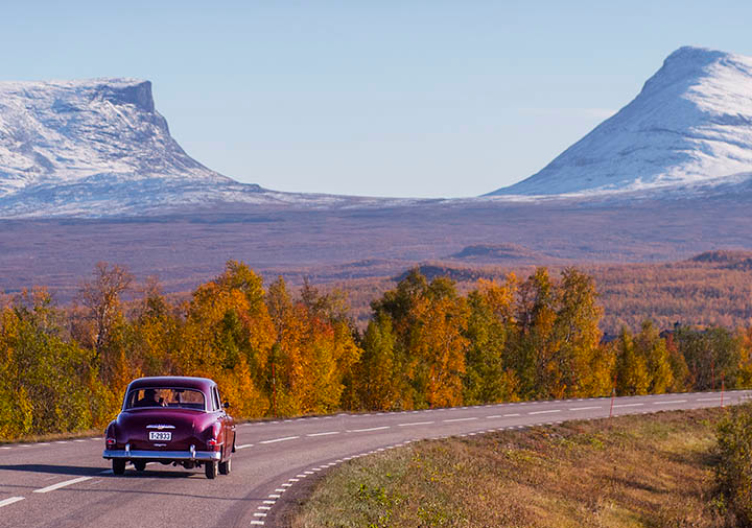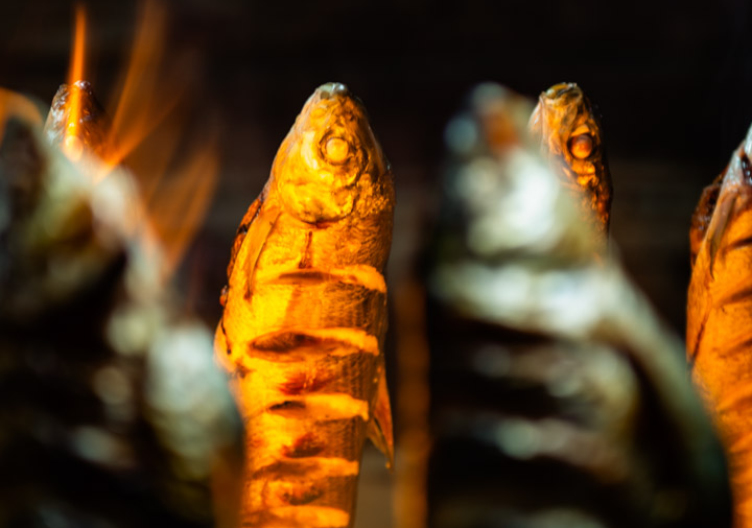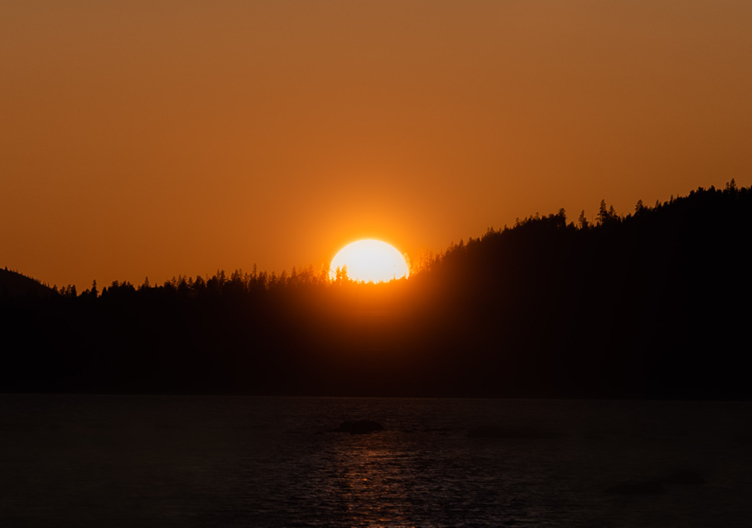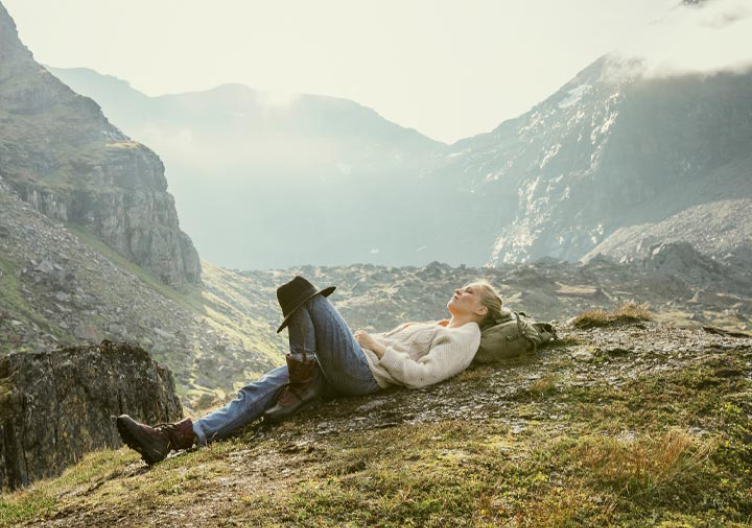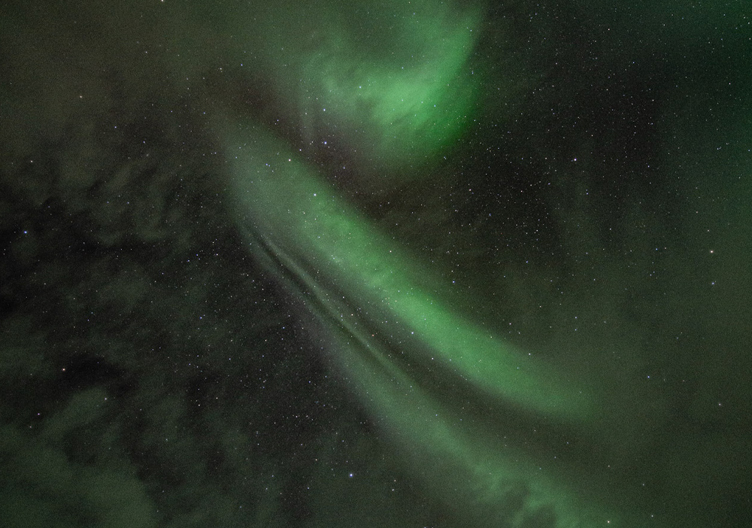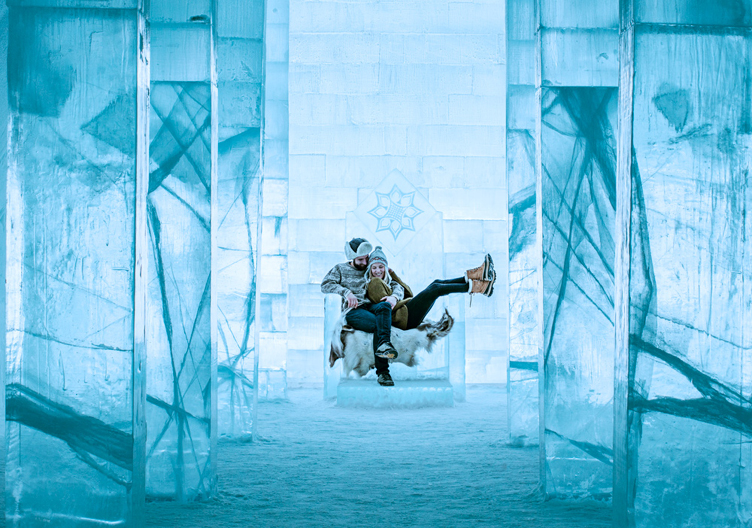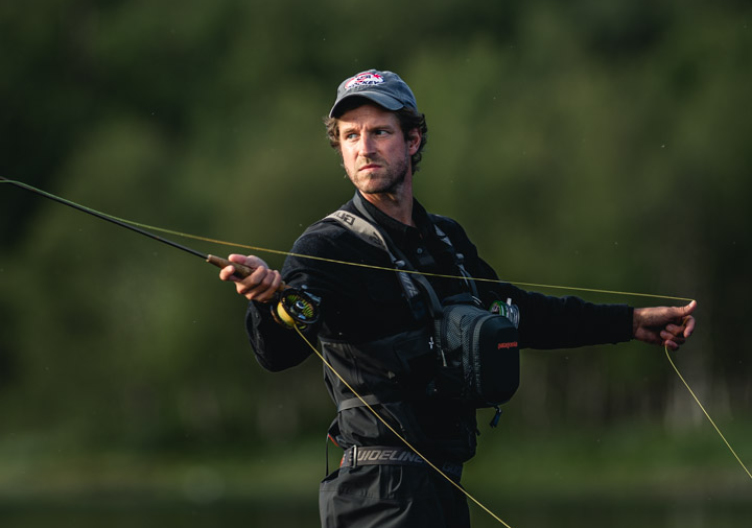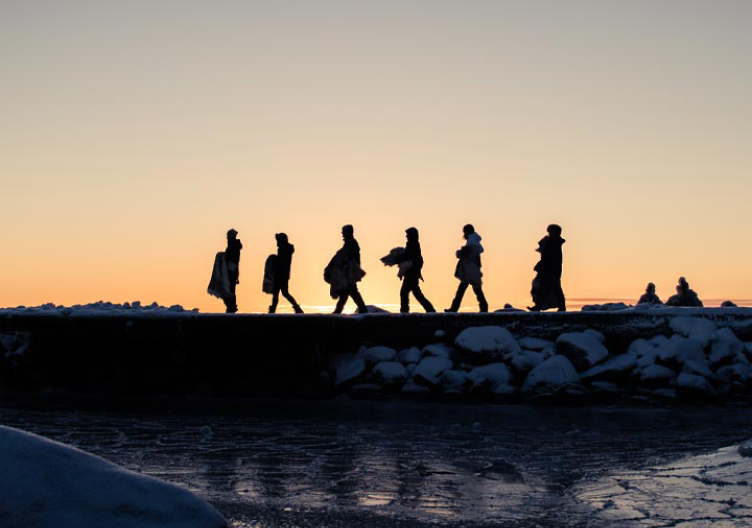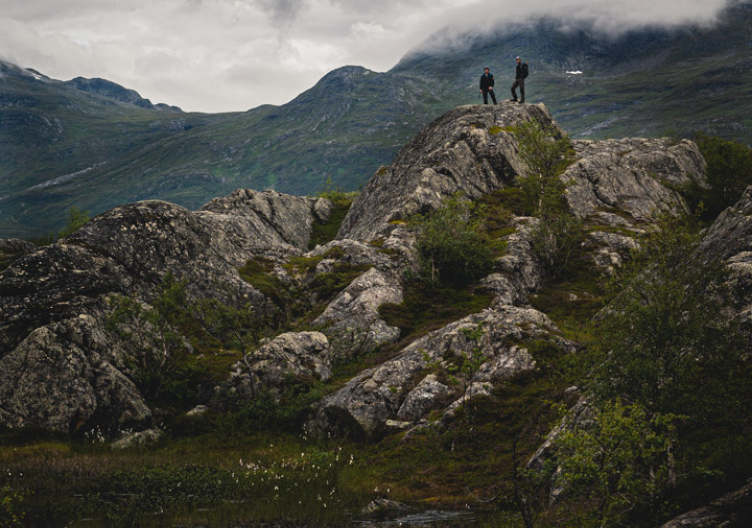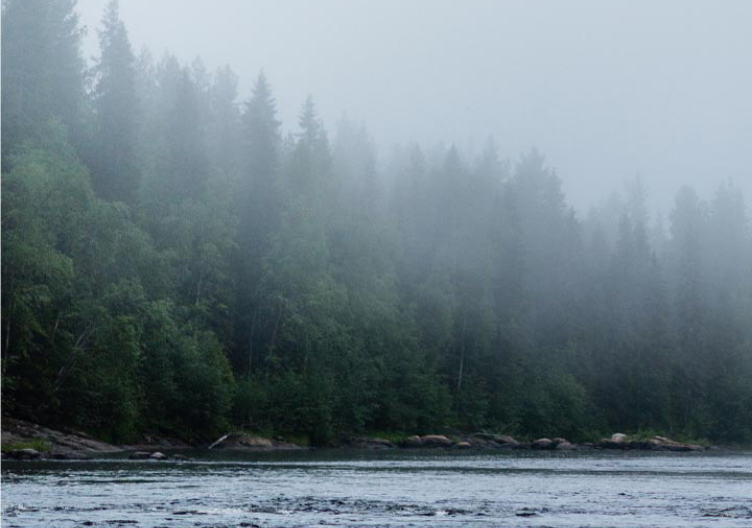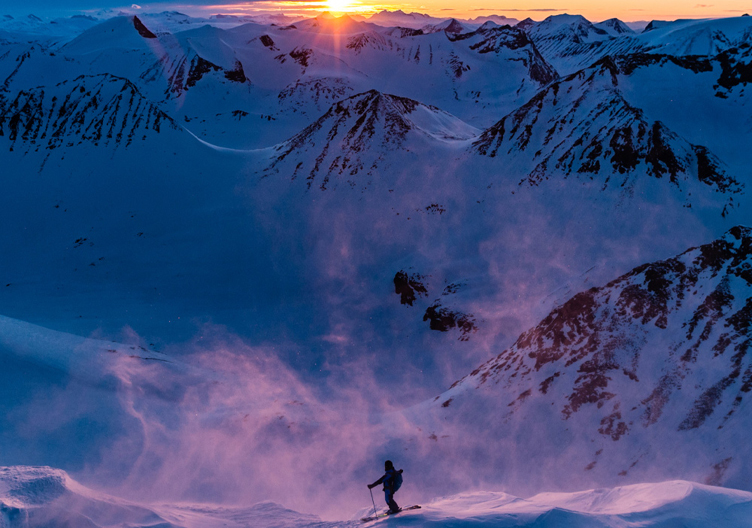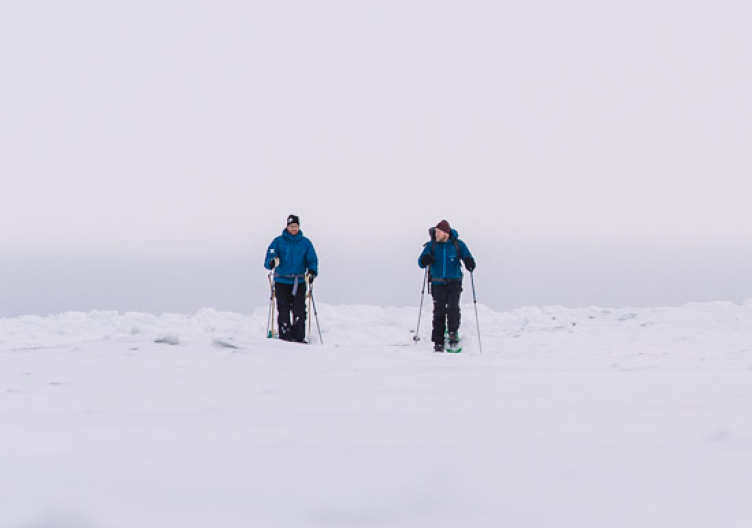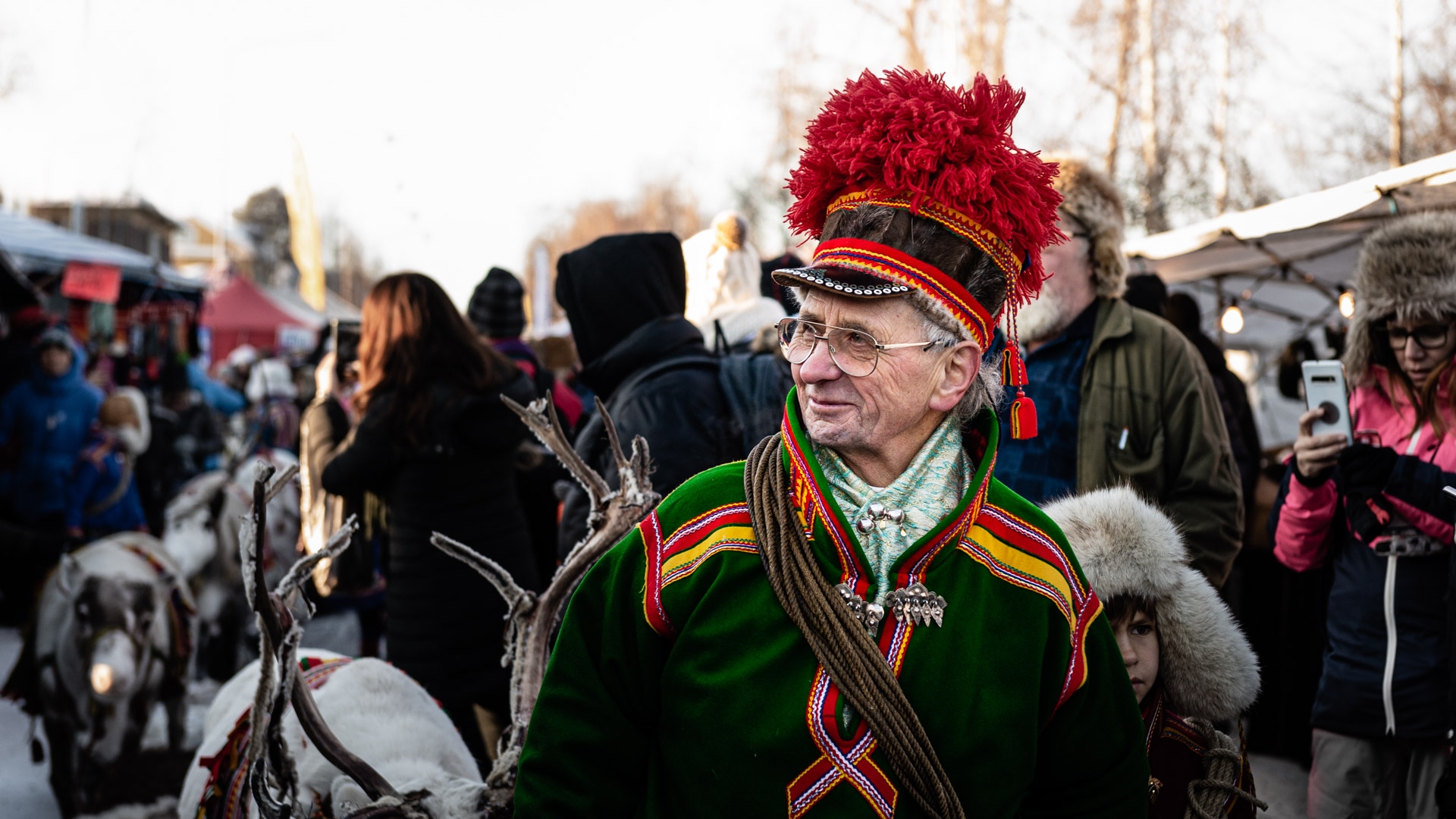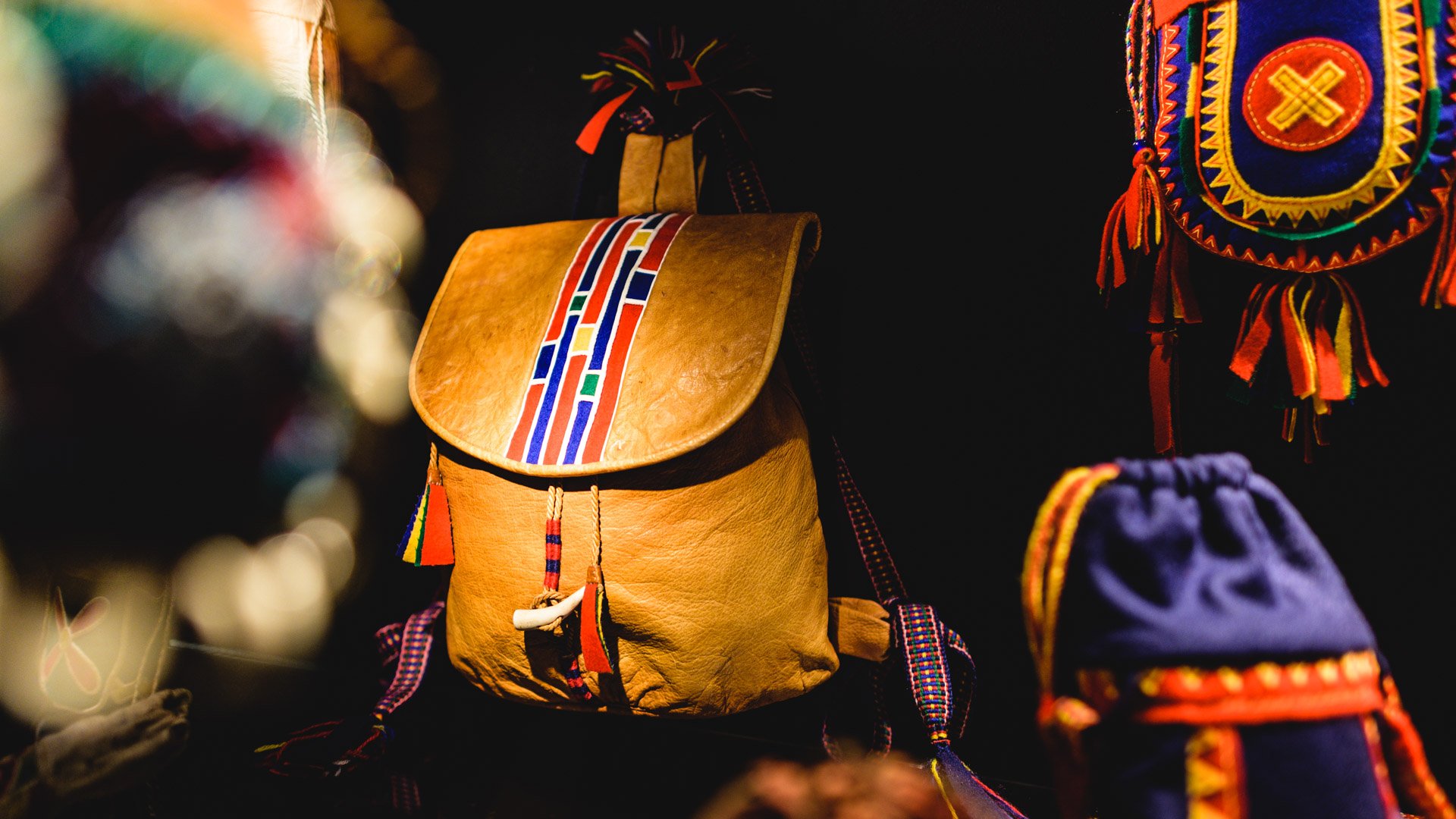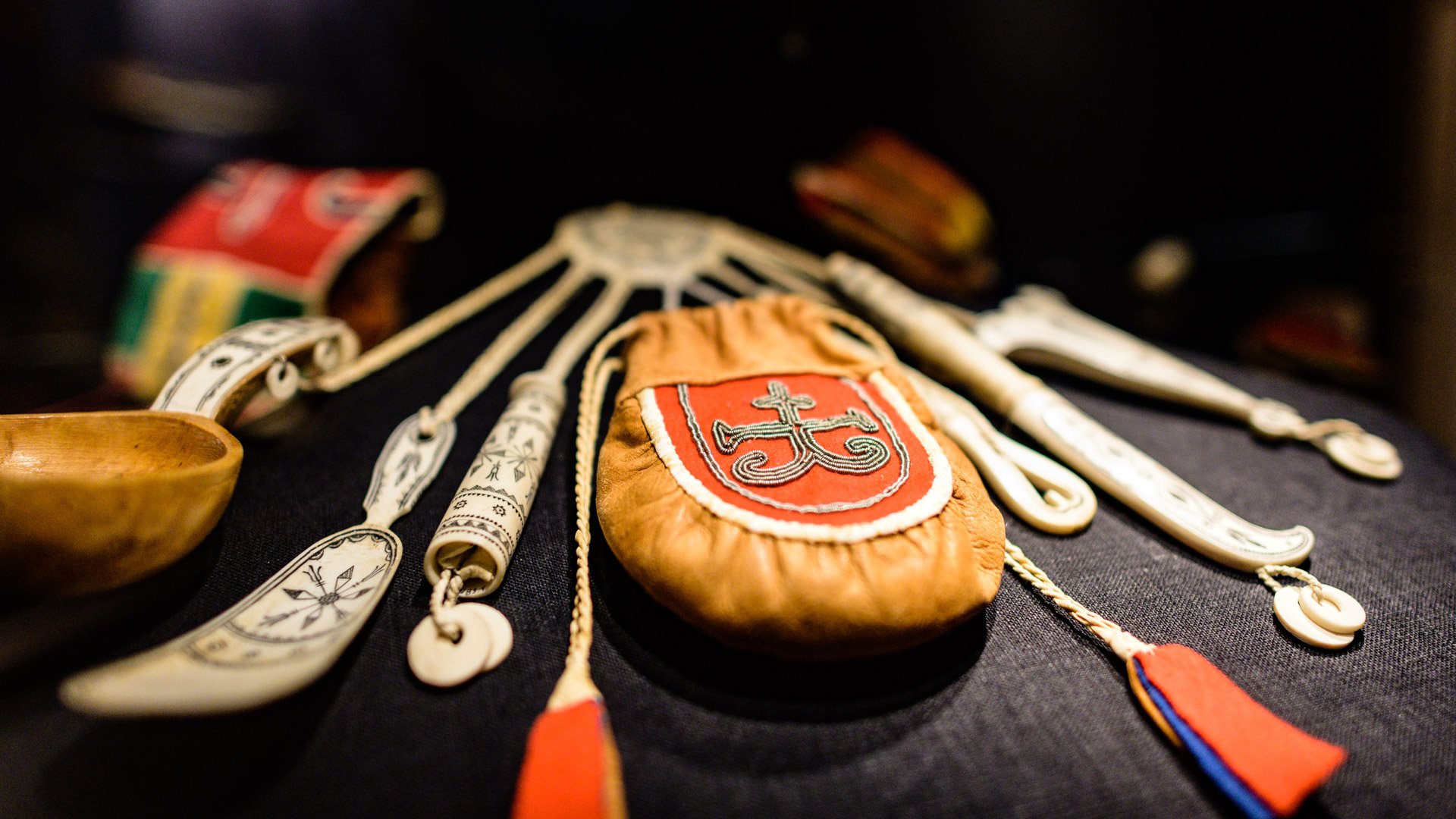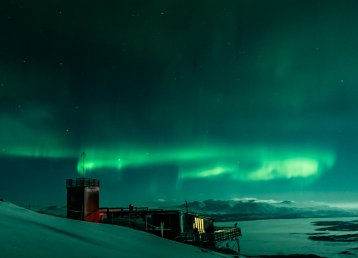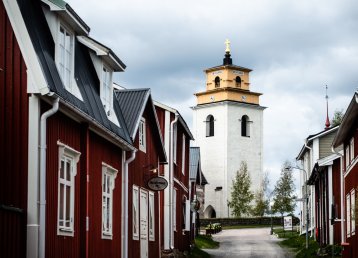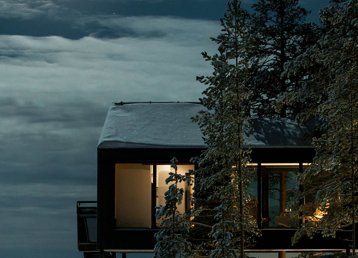You’ve got to expect the normal market knick-knacks, of course. There are the helium balloons, t-shirts with novelty prints and sweets that will make your blood sugar level hit the roof. But you’ll also come across the genuine and the beautiful. In Jokkmokk some of the best Sámi artisans and artists gather. This is where you’ll find the future culture bearers.
Over 400 years
When the market started some 400 years ago, this wasn’t that large an event. Back then, the market was purely a place to trade and meet. The Sámi people met to trade goods, socialise, and possibly to get a bit tipsy. At least they’d arrive in their party clothes. The Swedish king, Karl IX, and his bailiffs wanted to see what kind of goods the Sámi were trading so they could exact more taxes. At the same time, the priest would be there to give the sinners a good talking to. To make everything easier to control and run smoother, they organised the market during the coldest time of the year. People had to stay near the houses to keep warm. You might think this sounds like pure fiction, but the fact is that the Swedish state wanted to create a market for economic reasons – money was needed for all the wars the king was involved in down in Europe. And on that way, Jokkmokk got a market in the middle of the freezing cold.
Jokkmokk’s Market 2024
The 419th Jokkmokk’s Market takes place February 1-3, 2024. There will be hundreds of vendors in place, and hundreds of events taking place all over Jokkmokk during the market days and nights.
The food. Oh my God, the food
If you’re a fan of good food, you’re sure to relish the Jokkmokk Market experience. Jokkmokk is the epicentre of Sámi culture, offering unique expertise on the region’s natural produce, including game – with reindeer the jewel in the crown – berries, herbs and game fish.
The aromas from all the delicious produce make the stomach rumble and the mouth water. Market and street food are like hand and glove. Take the opportunity to taste local varieties of wok, kebab and burgers made from elk or reindeer. And for God’s sake, don’t miss the lovely white soft cake, gahkku. Preferably it should be eaten warm so that the butter melts and flows along your chin.
Also read
Get a taste of Swedish LaplandJokkmokk is the epicentre of Sámi culture, offering unique expertise on the region's natural produce, including game – with reindeer the jewel in the crown – berries, herbs and game fish.
Genuine and real
At a quick glance, as you zigzag between stands selling sweets, t-shirts, knitted socks, doughnuts – one stand even offers both piercings and spiritual talks – there is little to differentiate the market here in Jokkmokk from just about any other market in Sweden. But if you look further than the muddle of seemingly pointless things you will find the genuine and the real. Much of the handicraft, art and jewellery are created in materials derived from the reindeer, such as hides and antlers. It’s an intriguing fusion of traditional Sámi styles and new, modern influences.
Art and design
Those of you who are interested in art and design have a lot to discover in Jokkmokk. At market time, the Sámi folk high school (Samernas Utbildningscentrum) becomes a focal point for art and handicraft, with exhibitions by a number of artists. The school nurtures the next generation of Sámi artists, and the graduation exhibition showcases the students’ talents across a range of styles and materials.
Sameslöjdsstiftelsen (The Sámi Handicraft Trust) – Sámi Duodji – is also based in the centre of town, and offers fantastic exhibitions and pieces for purchase from Sámi artists. The Viltlok sisters’ store (Systrarna Viltok) is another must-see, brim-full of Sámi art, design and handicraft, often with a modern touch. And you can’t come here without visiting Stoorstålka, which stocks a host of beautiful leather items, including the iconic Sámi beak. You’ll also find exquisitely adorned belts and colourful weaved bands here.
The reindeer
At Jokkmokk’s Market, there’s no mistaking that reindeer are a fundamental part of Sámi culture. Reindeer have been an integral part of Sámi life for thousands of years, from winter and summer pastures, from coastal regions to mountain terrain. Throughout history, reindeer have provided humans with food, clothing and materials for functional items, while in past times they were also used to transport everything imaginable between settlements. Read more about the reindeer.
Cultural history
You can learn all about the history and traditions of Sámi culture by visiting the excellent museum of Ájtte in the centre of town. During the winter market, why not rest your weary legs by attending an informative lecture, or you can even visit one of the temporary exhibitions.
Jokkmokk’s Market is an annual highlight, with a host of cultural events held during the evenings. Indeed, it can be hard to keep pace with everything this little town has to offer. Colossal Sámi cots form a giant party zone in the main square, with Sámi people from across the Sápmi region mingling with visitors from across the world.
Cold as…
Often, it’s cold as, well… hell. It’s not unusual for temperatures to plummet below the –30 degree mark. To get the most out of your market experience, it’s important to have the right clothing. Wear multiple layers of warm materials such as wool, or other functional fabrics, covered by a heavy-duty down jacket, and put on a sturdy pair of winter boots. Add a fur cap and the warmest gloves you can find, and you’re all set for Jokkmokk’s Market.
Learn more
Jokkmokk’s Market was first held in 1606. The market was created following a request from King Karl XI, who sought to exert control over trading in Lappmarken in order to collect taxes for the Kingdom. Jokkmokk’s Market begins on the first Thursday of February every year. Situated just north of the Polar Circle and with a population a little over 2,000, the small town of Jokkmokk is a tranquil gem on the border of Laponia, the only combined nature- and cultural heritage site in Scandinavia.


